Sales Coaching for Performance Improvement
In today’s competitive business landscape, sales teams must continually adapt, improve, and stay ahead of the curve to maintain a strong performance. Dynamo Selling provides a unique and effective approach to sales coaching that helps teams not only meet but exceed their targets. By focusing on skill development, mindset shifts, and proven strategies, sales coaching fosters sustainable performance improvement, empowering individuals to unlock their full potential.
Key Takeaways
- Sales coaching helps boost performance by focusing on skill development, mindset, and strategy.
- Regular feedback and personalised training improve confidence and abilities.
- A coach can guide salespeople to focus on their goals, improving overall sales metrics.
- Mindset transformation is a key component of performance improvement in sales.
The Power of Sales Coaching: Why It Works
Sales coaching is not a one-size-fits-all strategy. It’s tailored to the specific needs of the team and individual sellers, taking into account their strengths, challenges, and goals. A good sales coach doesn’t just teach sales techniques; they mentor, support, and guide team members in honing their skills, boosting their confidence, and addressing performance gaps.
The following are some of the main benefits of sales coaching for improving performance:
- Improved Confidence: Consistent coaching sessions help salespeople build confidence in their abilities, which leads to more effective prospecting, pitching, and closing.
- Skill Refinement: Through regular feedback and targeted training, salespeople can fine-tune their communication and negotiation skills to enhance their overall performance.
- Stronger Focus: Coaching instils a sense of accountability and focus, keeping teams aligned with organisational goals and performance metrics.
- Mindset Shift: Sales coaching helps individuals develop a growth mindset, encouraging resilience, adaptability, and a positive approach to overcoming setbacks.
How Sales Coaching Enhances Performance
Effective sales coaching drives results by targeting three key areas: skills, mindset, and strategy. Let’s take a closer look at how each of these elements contributes to improved performance:
-
Sharpening Sales Skills
Sales coaching helps individuals refine the fundamental skills necessary for success, such as prospecting, objection handling, and closing deals. Coaches provide personalised guidance, role-playing scenarios, and feedback to ensure that every team member can effectively engage with customers, understand their needs, and offer tailored solutions.
-
Mindset Transformation
Rejection, extreme pressure, and high standards are common place for salespeople. Coaching plays a critical role in developing a positive mindset, helping team members view challenges as opportunities for growth rather than setbacks. When individuals feel more resilient and motivated, they are more likely to stay focused on their goals and perform at a higher level.
-
Strategic Thinking
Sales coaching goes beyond just teaching techniques; it fosters a deeper understanding of sales strategies and how to apply them effectively in real-world situations. Coaches help teams identify the right targets, optimise their sales processes, and develop tactical approaches that align with business goals. The result is a more strategic, results-driven team.
What Makes Sales Coaching Effective?
While it’s clear that sales coaching can improve performance, it’s crucial to understand what makes it truly effective. A coach must have a deep understanding of the sales process and be able to identify and address the unique needs of each team member. Here are the key traits that define effective sales coaching:
- Personalisation: A coach who tailors the coaching plan to an individual’s strengths and challenges will create lasting change.
- Continuous Support: Effective coaching isn’t a one-off event it’s an ongoing process that requires regular check-ins, feedback, and skill-building exercises.
- Actionable Feedback: Coaches must provide clear, actionable feedback that empowers salespeople to make improvements immediately.
- Data-Driven Approach: Effective coaches rely on data and metrics to assess progress and guide their coaching strategies.
How to Get Started with Sales Coaching
Implementing sales coaching doesn’t have to be complicated, but it does require a strategic approach. Here’s how to get started:
- Assess Your Team’s Needs: Begin by evaluating your sales team’s strengths and weaknesses. Identify areas that need improvement, whether it’s closing techniques, product knowledge, or customer relationships.
- Choose the Right Coach: Select a coach who understands your industry and the unique challenges your team faces. Experience and expertise are crucial.
- Set Clear Goals: Set clear, measurable goals for what you want to achieve through sales coaching. These objectives have to align with your overarching business aims.
- Commit to Regular Sessions: Sales coaching is most effective when it’s an ongoing process. Schedule regular coaching sessions to ensure continuous improvement.
- Track Progress and Adapt: Regularly review your team’s progress and adapt your coaching strategy as needed.
Conclusion
Sales coaching is a crucial investment in your team’s growth, helping to refine skills, transform mindsets, and align strategies for better performance. At Dynamo Selling, we offer tailored coaching to unlock your team’s full potential and drive lasting results. Ready to boost your sales team’s performance? Get in touch with us today and discover how our expert coaching can make a difference.
FAQs
- What function does a sales coach serve?
A sales coach helps sales professionals improve their skills, mindset, and strategies through personalised training, feedback, and support. Their goals are to increase overall performance and enhance sales.
- What is the typical timeframe for seeing results from sales coaching?
The timeline varies depending on individual goals and needs, but most teams begin to see noticeable improvements within 4 to 6 weeks of consistent coaching.
- Is sales coaching suitable for beginners?
Yes, sales coaching is valuable for salespeople at all experience levels. It helps beginners build a strong foundation and experienced professionals refine their skills.
- How can I measure the effectiveness of sales coaching?
Key performance indicators (KPIs) like sales revenue, conversion rates, and customer satisfaction are common metrics used to measure the success of sales coaching.
- What makes this coaching approach different?
The coaching approach focuses on personalised guidance rooted in real-world strategies, continuous feedback, and actionable techniques designed to deliver lasting results.


